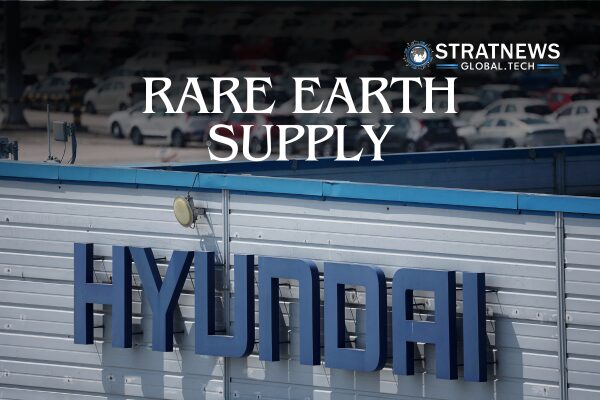Hyundai’s Rare Earths Stockpile Shields It from China Export Curbs
Hyundai Motor has built up a stockpile of rare earth materials sufficient to last about one year, positioning itself to weather ongoing global supply disruptions caused by China’s recent export restrictions. A person who attended a private investor call shared this information, indicating that the automaker is well-prepared compared to many of its global competitors.
Hyundai’s Preparedness Amid Global Supply Chain Strains
China’s April decision to tighten controls on the export of rare earths and related magnets has sent shockwaves through industries worldwide. These materials are vital for electric vehicle (EV) motors, aerospace parts, semiconductors, and military equipment.
Despite this, Hyundai, along with its affiliate Kia Corp, appears well-shielded. According to the investor call attendee, a Hyundai investor relations official stated that the company has “far more wiggle room” than others. This advantage stems from strategic supply chain diversification and timely procurement efforts.
Hyundai also took advantage of a brief easing in China’s export rules to significantly increase its rare earths reserves. These actions ensure the company can continue producing electric and hybrid vehicles for around a year without disruption.
Unprecedented Inventory Strategy, Rare Earth Stockpile at Hyundai
This rare earths stockpile, previously unreported, highlights Hyundai’s foresight. It remains unclear whether the inventory is held solely by Hyundai and Kia or also by their suppliers. However, the strategy stands out in an industry grappling with restricted access to crucial materials.
In a statement to Reuters, Hyundai declined to provide details but reaffirmed its commitment to operational stability. “We continuously evaluate market conditions to ensure operational stability and maintain a diversified global supply chain,” the company said.
A source familiar with the matter confirmed that Hyundai Motor Group also maintains about a one-year supply of magnets required for its core EV and hybrid models.
Broader Context: China’s Leverage and US-China Tensions
China accounts for roughly 90% of global rare earth production, giving it significant leverage. This dominance has become a focal point in the ongoing US-China trade tensions, which have expanded from tariffs to critical mineral controls.
On Tuesday, US and Chinese economic officials were set to continue trade talks in London, seeking to ease the dispute now affecting rare earths and related technologies.
with inputs from Reuters


